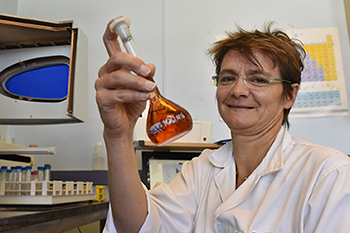Latest News Archive
Please select Category, Year, and then Month to display items
12 June 2024
|
Story Zinzi Zumana
|
Photo supplied
 UFS Lekgotla Men’s Well-being Programme: addiction dialogue encourages empowerment and exchange of ideas.
UFS Lekgotla Men’s Well-being Programme: addiction dialogue encourages empowerment and exchange of ideas.
The University of the Free State (UFS)
Division of Student Affairs hosted a ‘Dialogue on Addiction’ at the Equitas Senate Hall on 20 April 2024 as part of the UFS Lekgotla Men’s Well-being Programme. Led by the esteemed
Ace Moloi, male students’ well-being was addressed by focusing on topics relating to substance abuse, the ‘hookah pipe’, pornography, and digital addiction.
Ogaisitse Diseko, an expert on substance abuse, highlighted the misconceptions and societal impact of substances such as ‘bath salts’. Male students shared personal experiences, emphasising the need for early interventions and community backing to combat addiction.
Prof Noluxolo Gcaza, a Nelson Mandela University Professor specialising in digital wellness, presented on digital well-being, internet safety, and managing screen time. The dialogue concluded with Billy Mogadi sharing his journey from addiction to recovery, underscoring the human toll and the possibility of transformation.
Mogadi’s story resonated deeply, fostering hope and empowerment among attendees. The event highlighted the power of dialogue and support in addressing addiction issues. By promoting genuine interaction and providing the necessary tools, such initiatives contribute to community well-being and development. The UFS Lekgotla Men’s Well-being programme advances its goal of fostering healthier lives through open communication and mutual support.
UFS Ground Studies Laboratory receives accreditation to international standard
2016-03-18

Lore-Mari Deysel, Deputy-Director of the institute for Groundwater Studies.
Photo: Charl Devenish |
The Institute for Groundwater Studies (IGS) Laboratory at the University of the Free State is on equal footing with international testing labs. With its accreditation in March 2016 by SANAS (South African National Accreditation System), the IGS Laboratory now officially meets global standards.
Quality of water
The IGS Laboratory mainly analyses the quality of water samples. When it was originally established in 1989, the lab’s central function was to conduct testing for researchers at the institute itself. “After the public and water boards realised their need to analyse water samples, the IGS Laboratory expanded to deliver a service to these clients,” says Lore-Mari Deysel, Deputy-Director of the institute.
Since suppliers and regulatory authorities will not accept test or calibration results from a lab that is not accredited, the IGS initiated the accreditation process.
Accreditation to international standard
In order to be deemed technically competent and able to receive accreditation, labs must meet the ISO/IEC 17025 standard. ISO/IEC 17025 was first issued in 1999 by the ISO (International Organization for Standardization) and the IEC (International Electrotechnical Commission).According to Deysel, this is the single most important standard for calibration and testing laboratories around the world.
“Laboratories that are accredited to this international standard have demonstrated that they are technically competent and able to produce precise and accurate test and/or calibration data. Furthermore, it demonstrates that the university has the capacity to supply valuable and reliable services alongside the academy,” Deysel says.